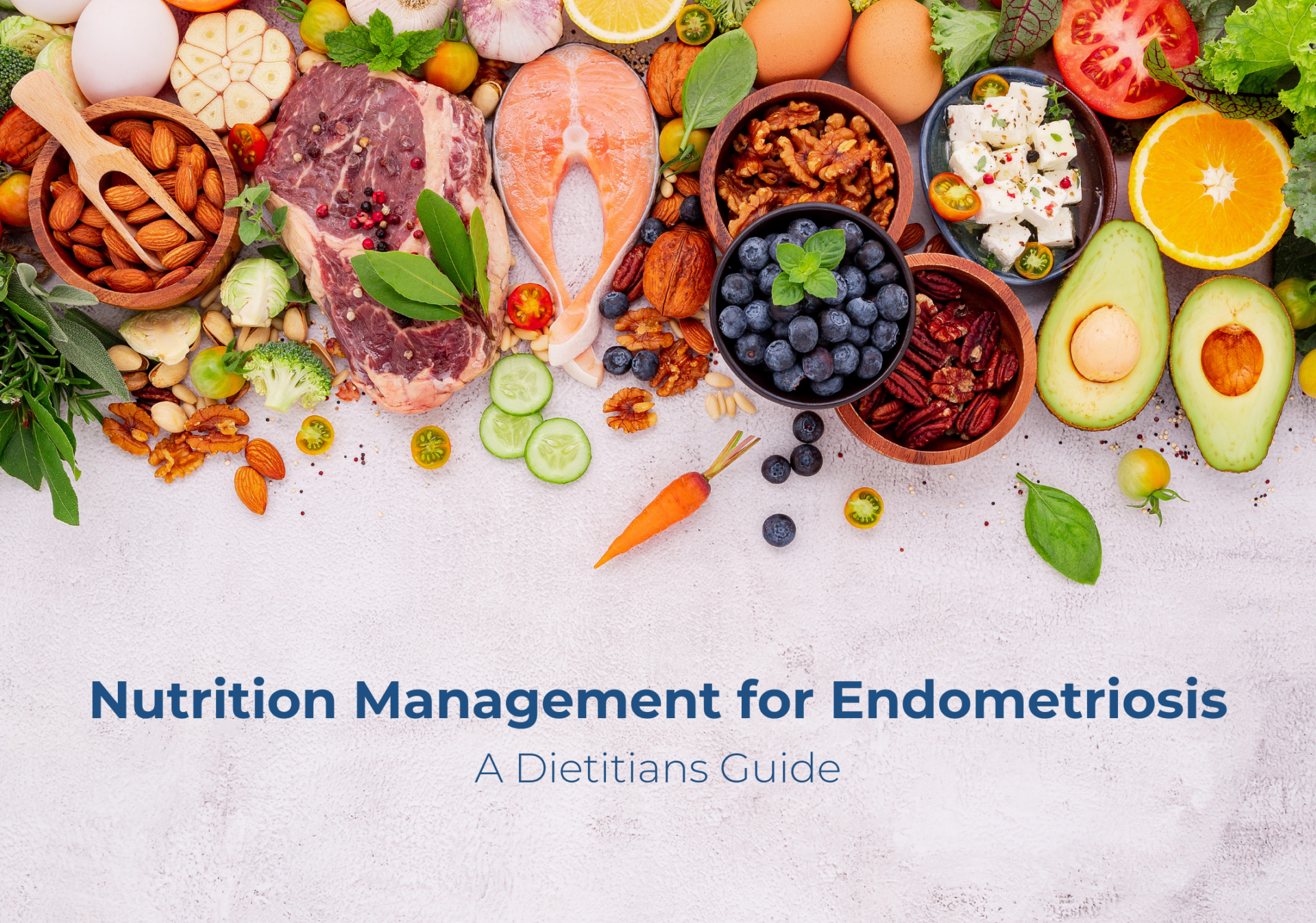What is Endometriosis?
Endometriosis affects millions of women worldwide, causing chronic pain, fertility challenges, and a significant impact on their overall well-being.
While medical treatments play a crucial role in managing endometriosis, the role of nutrition should not be overlooked.
A well-balanced diet tailored to the specific needs of individuals with endometriosis can help alleviate symptoms, reduce inflammation, and improve overall quality of life.
In this blog post, we will explore evidence-based nutrition strategies for managing endometriosis and discuss the invaluable support a registered dietitian can provide.
Understanding Endometriosis: Unveiling the Challenges and Impact
Before diving into nutrition management, let’s briefly understand what endometriosis is.
Endometriosis is a condition where tissue similar to the lining of the uterus grows outside the uterus, leading to pain, inflammation, and the formation of scar tissue.
Hormonal fluctuations throughout the menstrual cycle exacerbate symptoms, making dietary interventions an important component of managing the condition.
Nutrition Strategies for Endometriosis
2.1 Anti-Inflammatory Diet
An anti-inflammatory diet rich in fruits, vegetables, whole grains, lean proteins, and healthy fats can help reduce inflammation associated with endometriosis.
Foods high in antioxidants, such as berries, leafy greens, and fatty fish, can help combat oxidative stress and inflammation within the body [1].
2.2 Omega-3 Fatty Acids
Omega-3 fatty acids, found in fatty fish (salmon, mackerel), walnuts, chia seeds, and flaxseeds, possess anti-inflammatory properties and may help reduce pain and inflammation associated with endometriosis [2].
2.3 Phytoestrogens
Phytoestrogens are plant-based compounds that possess oestrogen-like properties.
Incorporating foods rich in phytoestrogens, such as soy products, lentils, and flaxseeds, may help balance oestrogen levels and reduce symptoms of endometriosis [3].
2.4 Fibre-Rich Foods
A diet high in fibre can aid in regular bowel movements and help eliminate excess oestrogen from the body.
Incorporate whole grains, legumes, fruits, and vegetables to increase your fibre intake and support hormonal balance [4].
2.5 Avoiding Trigger Foods
Certain foods may trigger inflammation and worsen symptoms in individuals with endometriosis.
While triggers can vary from person to person, common culprits include processed foods, high-sugar foods, caffeine, and alcohol.
It is essential to identify and eliminate or reduce these trigger foods from your diet [5].
The Role of a Registered Dietitian
Seeking guidance from a registered dietitian who specialises in endometriosis can be immensely beneficial.
A dietitian can provide personalised nutrition plans, offer education on symptom management through diet, and help you make sustainable lifestyle changes.
They can also provide ongoing support, monitor your progress, and adapt your dietary strategies as needed.
So, is nutrition for endometriosis worth exploring?
Incorporating evidence-based nutrition strategies into your daily routine can significantly impact your experience with endometriosis.
An anti-inflammatory diet, rich in antioxidants, omega-3 fatty acids, phytoestrogens, and fibre, can help reduce inflammation, manage pain, and improve overall well-being.
Remember, working with a registered dietitian is crucial for individualised guidance and support on your endometriosis nutrition journey.
Looking for a specialist Dietitian to help you navigate your Endometriosis? Book a session here!
Written by Ellen Kessling
References
- Chapron C, Marcellin L, Borghese B, et al. “Etiopathogenesis of endometriosis.” Best Pract Res Clin Obstet Gynaecol. 2020;65:2-14. doi:10.1016/j.bpobgyn.2019.09.010
- Barnard ND, Scialli AR, Turner-McGrievy G, et al. “The role of nutrition in women’s health: provider advice to premenopausal women.” Prev Med. 2009;49(2-3):173-175. doi:10.1016/j.ypmed.2009.05.005
- Simmen RCM, Simmen FA. “The maternal womb: A novel target for endometriosis prevention and therapy.” Mol Med. 2020;26(1):46. doi:10.1186/s10020-020-00215-7
- Silva Dos Reis RM, Ferriani RA, Abrao MS, et al. “The role of diet in endometriosis: a systematic review of literature.” Reprod Biol Endocrinol. 2014;12:88. doi:10.1186/1477-7827-12-88
- Harris HR, Chavarro JE, Malspeis S, et al. “Dairy-food, calcium, magnesium, and vitamin D intake and endometriosis: a prospective cohort study.” Am J Epidemiol. 2013;177(5):420-430. doi:10.1093/aje/kws247


